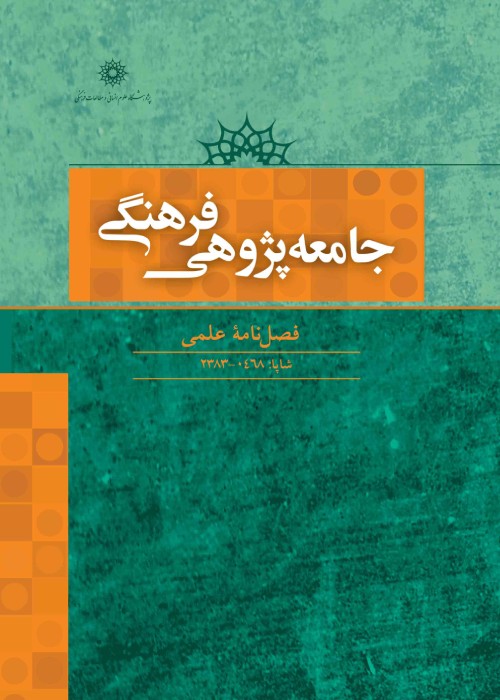The lifestyle of Lorestan's women from the point of view of tourists, military and political advisors
Knowing the way of life of women can be effective in understanding their family and social status in any historical period. The general perception of the status of women in the traditional lifestyle of Iranian people is the subordinate and inferior role of women. Readings based on lifestyle in social science have provided an opportunity to review these presuppositions arising from the literature of the early modern period; Therefore, in the upcoming qualitative research, using the historical ethnographic method and relying on documentary sources and data analysis in a descriptive-analytical way, the way of life of Lorestan women in the Qajar period is tried to be represented based on the travelogues of travelers, military and political advisors. Questions such as how was Lorestan's women's lifestyle based on tourists' information.The result of the current research question the frequent beliefs of the superior position of men and the inferiority of women in the region. and reflects the reciprocal relationship between men's and women's lifestyles in the region at the two levels of society and family. It led to the sociability of women, the right to participate and make decisions in family matters, and finally their relative control over the sources of power.Keywords: women's lifestyle, women of Lorestan, Small Lorestan region, tourists, military and political advisors.
Different social layers such as class, gender, etc. are not separate one from another, but intertwined, and "lifestyle" is reflection of these layers. In the meantime, knowing "women's way of life" is of importance, in such a way that there has always been a reciprocal relationship between a woman's way of life and her family and social class in every historical period. Studies about Iranian ethnic women are less focused on women from specific ethnicities and often concentrate on the women of the aristocratic and courtier classes. The result of the research documented cases such as the complete subordination of women to men, the weak role of women in the family and social decision-making, the absence of benefits from power sources, the presence of women in internal affairs, restrictions caused by hijab, and prevalence of polygamy. In other words, regardless of cultural and ethnic diversity, feminist views such as the priority of men in societies and the inappropriate treatment of women have been expressed. It was neglected women come from diverse ethnicities, religions, and cultural backgrounds. Different societies represent gender and sexuality in various and contrasting ways that play a vital role in illustrating Women's position in society. Tourists and consultants often focus on Lorestan and have documented reports about women's lifestyles in this region. They have also compared the cultural contrasts between themselves and the observed society.
Considering that the general perception of women's position in the traditional lifestyle of Iranian people refers to their subordinate and inferior role, lifestyle-based studies in social science and historical ethnography research provide an opportunity to reanalyze such presuppositions raised from early literature of the modern period. The current study applied the historical ethnographic approach and based on documentary sources analysis data in a descriptive-analytical way. Furthermore, according to the travelogues of travelers, military and political advisors presents the way of life of Lorestan women in the Qajar period and discover their position in the family and society.
The results reveal the reciprocal relationship between the way of life of men and women in this area in both society and family, as it releases doubt on the common beliefs about the superior position of men and the inferiority of women in this region. The women of Lorestan have had a relatively prominent position in the economic system, which led to their relative dominance over power sources, such as dominating living spaces, having financial independence, the right to participate and make decisions in family and social affairs. Regarding social system factors, women have had a similar position to the economic system, and of course, more prominent than the political system, and have had visible and hidden roles. The hidden and implicit roles of women have been reflected in the apparent authority of men. The authority of every man required having a potent wife or mother, so that the promotion of the social and family status of men, as well as their social competence and acceptance, had a direct association with the characteristics of the mother, wife, their social and family status, and vice versa. This has prevented the expansion and prevalence of the superiority of one and the inferiority of the other. It has generated a relative balance in all levels of family and social life, which can be a proof of not being low position of women in the family and society; However, in several cases, there has been a difference of opinion among men towards gender and women.
The attitude of tourists and military and political advisors whose reports and works were used in this research toward the situation of women in this region in many cases has been impartial, although in some circumstances they have compared it with the women of their countries. Women economically have been presented with relatively financial independence and a significant role in the economy of the family and society. From a social point of view, they have been mentioned as women with characteristics such as being social, interacting with acquaintances, relatives, and strangers, being less shy, hardworking, and participating in family and social decisions.
- حق عضویت دریافتی صرف حمایت از نشریات عضو و نگهداری، تکمیل و توسعه مگیران میشود.
- پرداخت حق اشتراک و دانلود مقالات اجازه بازنشر آن در سایر رسانههای چاپی و دیجیتال را به کاربر نمیدهد.



